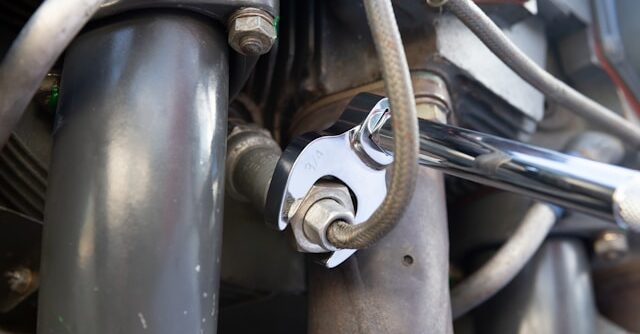
Table of Contents
- The Importance of Hydraulic Oil in Machinery Maintenance
- Choosing the Right Hydraulic Oil for Your Equipment
- Handling and Storage of Hydraulic Oil
- Hydraulic Oil Analysis and Why It Matters
- Hydraulic Oil Additives and Their Effects
Key Takeaways
- Quality hydraulic oil is instrumental in prolonging machinery lifespan and reducing maintenance costs.
- Selecting the correct oil based on specifications and additives can enhance equipment performance.
- Implementing a systematic hydraulic oil maintenance plan is critical for efficient machinery operation.
The Importance of Hydraulic Oil in Machinery Maintenance
The longevity of industrial machinery is a considerable concern for maintenance managers worldwide, as it directly impacts productivity and the bottom line. One of the most effective methods to enhance the lifespan of such equipment is through the application of high-quality hydraulic oil. Finding a reliable source of hydraulic oil Charlotte, NC, or any locale you operate in, is fundamental since the proper fluid selection facilitates optimal machinery performance and longevity. Understanding the critical functions of hydraulic oil is essential for adequate maintenance, as neglect can lead to accelerated wear and potential equipment failure. Investing in premium hydraulic oil ensures optimal performance and leads to significant long-term savings in operating costs and downtime.
Choosing the Right Hydraulic Oil for Your Equipment
Selecting the appropriate hydraulic oil is crucial for ensuring machinery longevity. It requires a deep understanding of viscosity grades and compatibility with operating conditions. Incorrect viscosity can lead to decreased system efficiency and increased wear. Specifications and certifications, such as those provided by ISO standards, serve as benchmarks for oil quality, ensuring performance and compatibility. Understanding equipment-specific requirements allows customized fluid solutions that enhance reliability and performance mitigating risks associated with mismatched hydraulic fluids and preserving machinery lifespan.
Handling and Storage of Hydraulic Oil
Proper handling and storage of hydraulic oil are essential to maintain its integrity and performance throughout its lifecycle. Storing oil containers in a clean, dry environment minimizes contamination and moisture ingress, preserving oil quality. Preventing contamination during oil transfer to machinery involves using dedicated clean equipment and following stringent cleanliness protocols. These practices safeguard oil purity and viscosity, ensuring optimal machinery function. Responsible disposal or recycling of used oil underscores environmental stewardship and contributes to a healthier environment for future generations.
Hydraulic Oil Analysis and Why It Matters
Regular hydraulic oil analysis is crucial for maintaining peak equipment performance, providing a comprehensive health check for hydraulic systems by uncovering underlying issues before they become significant problems. Meticulous sampling and testing detect contaminants, wear particles, and signs of degradation, enabling proactive maintenance strategies. Understanding oil analysis reports empowers maintenance staff to make informed decisions about service timing, oil change-outs, and filtration effectiveness, enhancing machinery efficiency and uptime. This strategic approach based on accurate data saves costs and improves hydraulic system reliability. Tailored maintenance actions informed by oil analysis findings optimize equipment life and operational costs, ensuring each piece of machinery receives the attention it needs for optimal performance.
Hydraulic Oil Additives and Their Effects
Additives play a vital role in enhancing hydraulic oil performance for machinery, offering wear resistance, corrosion prevention, and stability under oxidative stress. However, their effectiveness diminishes over time, requiring periodic replenishment or oil changes to maintain system protection and performance. Monitoring additive levels through regular oil testing helps prevent premature equipment wear and failure, avoiding unplanned downtime and associated costs. Seeking hydraulic oil with a tailored additive package suited to specific operational demands can safeguard machinery against environmental or operational stresses, contributing to longevity and reliability. The right balance and selection of additives within hydraulic oil are crucial for optimal industrial machinery performance.
